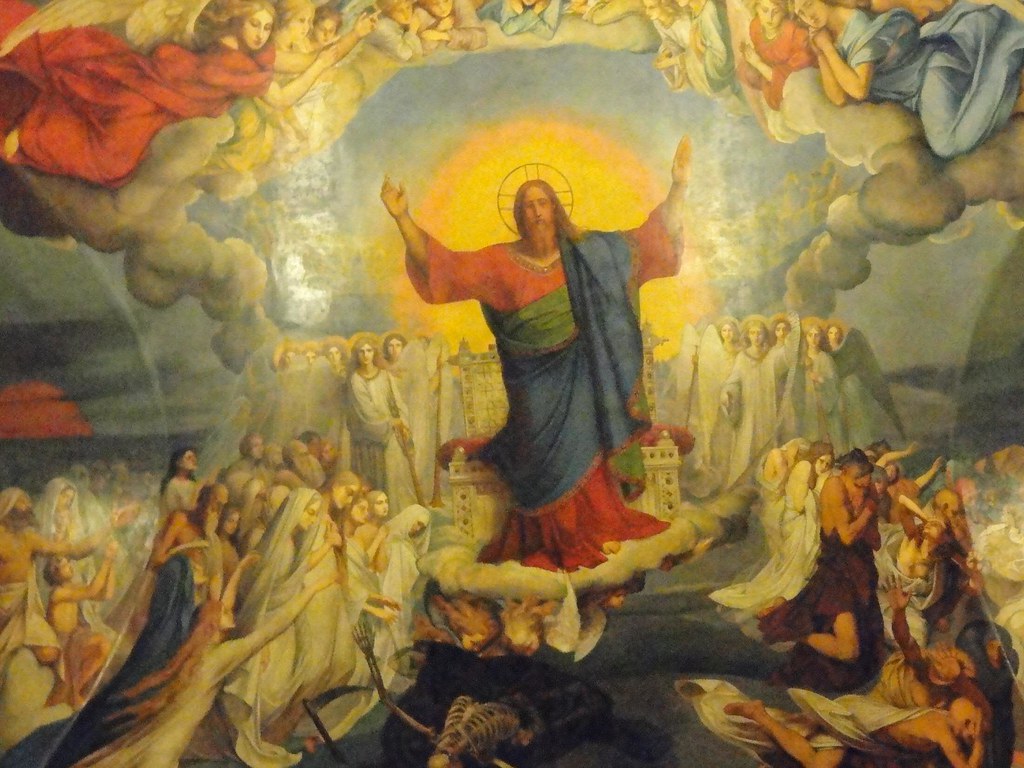|
We looked a bit at “judgment” yesterday, and how the forthcoming judgment of the entire world ought to be at the center of the Christian consciousness. But knowing the judgment is imminent is not enough to place it as such. We ought to spend some time considering what this judgment is, why it is, and perhaps, in the limited capacity our minds allow, how it might look to us, the judged. Guardini begins this exercise in chapter five of Part 5 of The Lord. The obvious truth is that there seems to be something wrong with the world. Throughout all of human history, it’s the one observation that keeps coming up again and again. There’s something about human existence that seems off to us. Everywhere we turn we see “stupidity, injustice, deception, and violence” between men and their fellow men. In the same way humanity keeps noticing this problem, we also have this nagging expectation that one day all will be as it should—that there will be some kind of course correction or fulfillment in which the wrong will end and everything is set right. But is that all this “judgment” is? A resetting of the proper order of things? Guardini says “No.” “In order that ‘judgments’ such as these take place, things have only to appear before God’s clarity. But what Jesus was referring to in the last days of his earthly existence was something else. The judgment he means will not come through the falling away of time’s constraint and the placing of all things in God’s clarifying light, but through God’s advent. Judgment is not the eternal consequences of divine government, but God’s specific historical act—the last.” -Romano Guardini ("The Lord") In other words, the fulfillment we seek and the “setting things right” will be present, ultimately, in eternity. But that is not what this judgment is or even entails. Judgment stands between things as they are now and things as they will be in eternity. Judgment stands as a definitive historical moment, the final moment of time itself, when everything enters into the eternal. Judgment is precisely the final arrival of God in the world, His “advent.” We know it perhaps more familiarly as the Second Coming of Christ. It is at this moment of Judgment, this final historical act, that time itself ceases. There is no more room for us to change our ways in preparation. It’s the moment when the whole world, all that is and ever has been, comes face to face with the Son, the Judge, and in that moment the measure of our worth will be weighed, and by that measure we will be sent forth to our eternal destiny. But what is the measure? How are we to be judged? Recall the words of Jesus here, where he warns precisely about the coming judgment: “Then the king will say to those at his right hand, ‘Come, you that are blessed by my Father, inherit the kingdom prepared for you from the foundation of the world; for I was hungry and you gave me food, I was thirsty and you gave me something to drink, I was a stranger and you welcomed me, I was naked and you gave me clothing, I was sick and you took care of me, I was in prison and you visited me.’” -Matthew 25:34-39 We might expect our worth to be measured in our deeds. That’s the depiction we see of eternal life and, indeed, even the Judgment itself, in popular media. The more you help people, the more you clothe them and feed them and nurse them, the closer you are to the kingdom. This could be considered true in a sense, but it is not what Jesus is saying here. Those are all important and virtuous things to do, if we are talking about living the Christian life. So please, do them! But it is not just the measure of our love that matters here. It’s specifically our love of Jesus, the Way, the Truth, and the Life. Behind each person stands Christ, for “just as you did it to one of the least of these who are members of my family, you did it to me.” Being good to our neighbors isn’t just a thing we do, and especially not merely a thing we do to merit eternal life. Rather, it is chiefly our love of Christ, which informs and drives our love of neighbor, that will be the measure of our worth. Unlike any other moral or ethical system of the world, which say merely things like “do unto others as you would have them do unto you” or “do good and you will receive good,” Jesus says: Love God, the source of all Good, and because of your love of God also love your neighbor, for your neighbor is made in the image of God just as you are, and thus how you treat him is how you treat God and Good itself. “Everything a man is and has, what he does with it, how he acquits himself of his everyday duties—all this will be presented as his judgment. He will be judged with justice and love; the real measure of that judgment, however, is his love of his fellow men, which is love of Christ. That is why St. Paul says ‘For the whole Law is fulfilled in one word: Thou shalt love thy neighbor as thyself’ (Gal. 5:14).”
-Romano Guardini ("The Lord")
0 Comments
Leave a Reply. |
Series Info
Every day of Lent, I am writing a reflection piece on two chapters of "The Lord" by Romano Guardini. If you'd like to read or follow along, you can find the full calendar of where we're at below, or Click Here for the main landing page. Archives
April 2020
Categories
All
|

 RSS Feed
RSS Feed